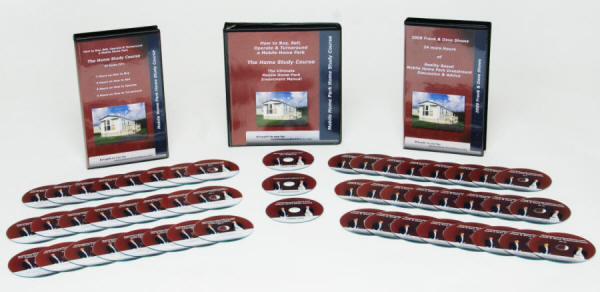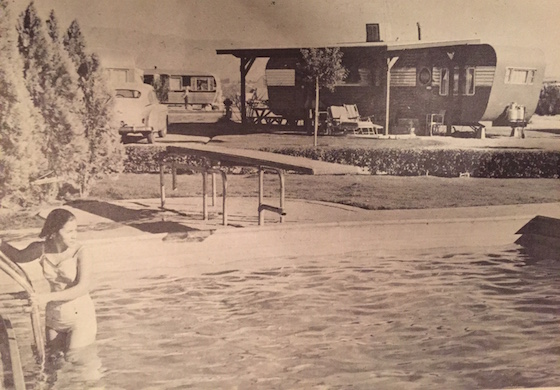Here is a quote from a recent hate email we received.
"I honestly don't now how you can sleep at night. You're making money off people trying to live off $20,000 a year? I can't wait to read your eulogy someday. "He really embodied the American spirit - sucking every drop of hope his countryman to further his own profit." No doubt you are getting government handouts in the form of tax breaks and incentives to accomplish your life's work... Way to be a leech. I hope you don't have kids. If you do, please don't tell them what you do. Tell them your a Nazi instead. It will be less traumatic for them."
We receive, on a regular basis, anonymous emails of hate like this from individuals protesting that we are “evil” landlords. They typically tell us that we’re going to “rot in hell” because we dare to raise rents and – even more sinister – actually demand that tenants pay on time. Of course, all other industries that we’re aware of, increase their prices regularly and shut off or repo their goods and services if payment is not made on time. So we guess the real issue is simply that we’re “landlords”. So why is there so much hatred in the U.S. towards “landlords”?
They are taken for granted
Except for a select few, everyone has a “landlord” whether they rent or own ( in that case, it’s the mortgage company). These landlords hold power over 90% of Americans for nearly their entire lives, and do so 24/7. As a result, everyone takes them for granted, since they are around from birth until death. Cars, for example, are something that you normally can’t buy until you are at least 16, and even then are something special and of your own choosing. So the car company is treated with respect – even when demanding payment – because it’s something that you had to work up to and are proud of owning. Landlords, on the other hand, are the poster child of the old saying “familiarity breeds contempt”. No tenant seems to realize that, without the landlord, they would be homeless and living in that car. The bottom line is that Americans owe a bigger debt to landlords than any other group in the country, as they would be living in tents without them. However, you will never find a bigger case of Americans having no gratitude.
The media has confused their role
Making matters worse is the manner in which the media portrays the relationship between landlords and tenants. In “I Love Lucy”, Fred and Ethyl Mertz (the landlords) hang out with their tenants, loan them money, babysit, go on vacations, and devote their lives to the happiness of their tenants. In “Three’s Company” Mr. and Mrs. Roper (the landlords) are the benevolent watchmen of the well-being of their tenants, even screening potential boyfriends. Over and over, in movies and television, the landlord is not just someone who rents property, but who is an unpaid superhero which protects and supports the tenant’s every wish and desire. Of course, this is a ridiculous request and, if that was the real requirement of owning property, nobody would do it.
They are always pressing for collection
Landlords are pictured as always pressing for payment of the rent. Of course it’s true because the tenants never pay as promised. I’ve evicted tenants who make good money, but choose to spend it on everything in the world but rent. What are they thinking? Can they tie up that big screen TV between two trees and live under that for a roof? Rent is the one big item that nobody wants to pay, because it’s not fun or exciting. A vacation – that’s exciting. But keeping a real roof over your head is boring and mundane. Landlords don’t want to spend all their time in collections, but they are forced there by tenants who won’t behave. We’ve always admired businesses that only give you the service after you make payment – like Disneyland – but we have to extend credit every month, and then collect on it.
They’re rich so they don’t need the money, right?
And where does the “landlords don’t need the money, so they are evil to ask for it” assertion come from? Since when is someone’s net worth the criteria for collecting money or being a non-profit. Bill Gates is the richest man in America, yet nobody complains about him charging for Microsoft products. There didn’t seem to be any complaints when the late billionaire Steve Jobs charged $900 for an iPhone. Basically, this is just another rationalization used to not pay the rent – nothing more.
Conclusion
Landlords are not evil. Tenants are. They often don’t pay their rent on time, and typically treat the property poorly. They show no appreciation for the landlord providing them shelter, or respect for the landlord’s feelings or rights. Never, for a minute, let their hatred rattle you. Stick with your business model. The good tenants are the ones that you should focus on, the ones that pay on time and appreciate what you do. Ignore the “haters” and, if anything, have pity on them.


